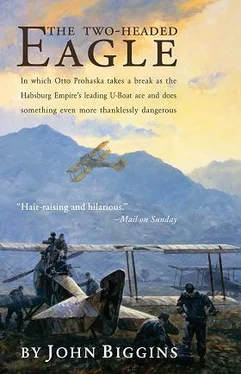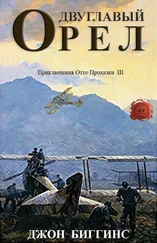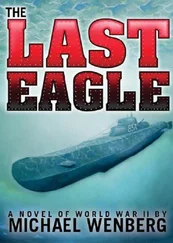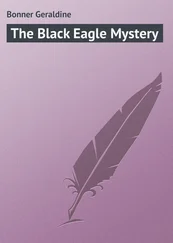Strange also how merely touching the grainy surface of that faded photograph evokes all the smells of those months so many years ago, rather like one of those children’s ornamental stickers (Mr Dabrowski’s great-granddaughter showed me one last summer), where scratching it with a fingernail liberates a pungent odour of peppermint or cinnamon. I have only to touch it and back come all the various scents of seventy years ago, flying over the now forgotten battlefields of the Austro-Italian Front: the smell of early-morning dew on the tyre-crushed grass of the airfields; the smell of petrol and cellulose dope and lubricating oil on hot engines; the warm sweet-sour perfume of mahogany plywood; the reek of cordite and fresh blood; and the nauseating rotten-egg stench of antiaircraft shellbursts. And the smell of burning wood and linen left hanging in the thin, cold air, flavoured sometimes with a sinister taint like that of fat burning in a frying-pan.
I never spoke or even thought much about it in the years that followed: we had lost the war, while I had lost my country and my career and had a new life to build for myself. Many of the memories were distressing—in fact are painful to me even now, a lifetime after the events. And to tell you the truth, I very much doubted whether anyone would be at all interested. But young Kevin and Sister Elgbieta tell me that I am now one of the very few left who remember it all. So perhaps now that I have at last committed my U-Boat reminiscences to posterity I might as well tell you about my flying career as well. It may perhaps interest you; and if nothing else it will help me to pass the time before the undertakers come to screw down the lid on me. You will probably think some of the tales a little improbable, but there you are, I am afraid that I can do nothing about that: Austria-Hungary was a rather improbable sort of country, and in the year 1916 flying was still a decidedly eccentric sort of thing to be doing, so much so that the psychiatric tests which became de rigueur for aspirant fliers in the Second World War were held to be completely unnecessary in the First since, by definition, anyone who volunteered to fly must be not quite right in the head—or if he was not already, very soon would be. I hope that these yarns of mine may at least entertain you, and perhaps give you some idea as well of what it was like to go up in an aeroplane in those few brief years when men took to the air wearing the two-headed-eagle emblem of the Holy Roman Empire.
I first began to notice it that morning about an hour after dawn, as the train stopped to take on water at the station in that wide, high wind-swept defile know to us in those days as the Adelsberg Pass, where the railway line from Vienna crosses the last range of mountains before Trieste. It seemed to bounce to and fro between the scrubby, eroded slopes of limestone and come at us from all directions at once: not a distinct rumbling or booming as I had expected but a faint, sinister, barely audible shuddering of the air, irregular but incessant, as if some vast sheet of tin were being shaken somewhere away over the mountains. It told me—as if there should have been any doubt on the matter—that we were getting near the war zone. For this was the last week of July 1916, and only a few score kilometres away, along the valley of the River Isonzo, the Italian armies were preparing for their next assault on the lines guarding the south-western frontier of our great multi-national empire. I was now approaching the zone of the armies, which began just beyond Adelsberg. Soon I too, like perhaps thirty million others, would become a subject of that new state which had been carved out of the body of Europe over the past eighteen months: the Front, that strange linear kingdom hundreds of kilometres long, but sometimes only metres wide, which now snaked across northern France and through the marshes of Volhynia and along the crest of the Alps—a curious country, where the inhabitants were exclusively male and, although mostly under twenty-five, suffered a mortality rate so high that the population could be kept up only by constant immigration; a strange topsy-turvy land where men lived underground, worked by night and slept by day, and courted instant death if they appeared in the open for a couple of seconds. It was a hungry land as well, one that produced nothing whatever but which consumed so prodigally that the entire economic life of the world was now devoted to feeding it. Soon I too would cross its borders and become one of its subjects. For how long exactly remained to be seen.
The train moved out of the station once more in a haze of lignite smoke, and was soon clanking through the five successive tunnels beyond Adelsberg, where the line burrows through a series of mountain spurs. Before long we were squealing to a halt alongside the low platform of the station at Divacca. I had changed trains here many times during the previous sixteen years, for Divacca was the junction for the line down the Istrian Peninsula to Austria’s principal naval base at Pola. But this morning it was to be different: my rail warrant extended only as far as Divacca, where I was to get off the train and carry on to an obscure little town called Haidenschaft some twenty-five kilometres away, thence to a doubtless even more God-forsaken place called Caprovizza, so out-of-the-way that I had been unable to find it even on quite large-scale maps of the Kustenland region.
The other difference that marked off my arrival that morning at Divacca from all the previous ones was that I was now stepping down from the train as someone else. On all previous occasions I had been travelling as a plain, ordinary naval lieutenant called Ottokar Prohaska, the son of a Czech postal official from a small town in northern Moravia. Now though, even if I was still only a Linienschiffsleutnant as regards service rank, I was altogether something far more exalted in social standing: Ottokar Prohaska, Ritter von Strachnitz, the most recent recipient of the very rarest and most prized of all the Old Monarchy’s honours for bravery in action, the Knight’s Cross of the Military Order of Maria Theresa, awarded to me a few days previously at Schonbrunn by the Emperor himself, in recognition of my feat one night a few weeks previously, when I had shot down an Italian airship off Venice and then, for good measure, torpedoed one of their submarines as well. And to be honest I was finding it more than a little hard to get used to my sudden fame and elevation to noble rank. I had tried to leave Vienna quietly the previous evening—not least because I had got married only two days before. But quiet farewells to my wife had not been possible, not with the crowds which had somehow gathered ahead of me at the Sudbahnhof, and the autograph hunters, and the popping magnesium flashes and the children being held up on their fathers’ shoulders to get a look at me. In the end, unused to such celebrity, I was heartily glad when the train steamed out of the station.
But even as we clanked southwards through Graz and Marburg I was not to be left in peace. As I made my way along the corridor to the meagre wartime buffet car, brother-officers had jostled to shake my hand and slap me on the back and wish me well in my new career now that (according to the Vienna newspapers) command of a U-Boat had become too humdrum for me and I had volunteered for flying duties, “. . . as the only field left in which he may provide fresh evidences of his matchless valour in the service of Emperor and Fatherland.” When I was at last able to find some peace back in my compartment I looked down once more at the decoration pinned to the left breast of my jacket. It seemed a small enough thing to be making such a fuss about, I thought as I gazed at it lying in the palm of my hand: a small white-enamelled gold cross with a little red-white-red medallion in the middle, encircled by the word Fortitudini . Such a small thing, yet within a few hours it had turned my life upside-down to a degree where I was already beginning to suspect that malignant fairies had substituted someone else for me while I slept.
Читать дальше












